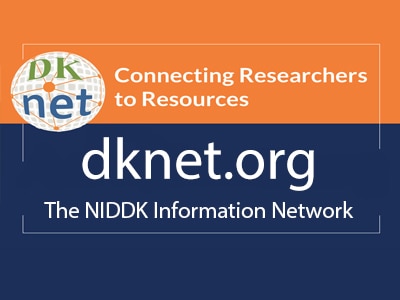Kidney Disease Centers
Enhancing the effectiveness of research related to nephrology by encouraging collaboration among investigators from relevant disciplines.
NIDDK Program Staff
- Debbie Gipson, M.D., M.S. Precision Clinical Trials; Clinical and Translational Studies; Chronic Kidney Diseases; O’Brien Kidney Resource Alliance; Pediatric Centers of Excellence in Nephrology; Kidney Precision Medicine Project; NIDDK Central Repository; and Pediatric Urology
- Christine Maric-Bilkan, Ph.D. Basic Renal Disease; Basic Science of Polycystic Kidney Disease
- Susan R. Mendley, M.D. Clinical and Translational PKD; Polycystic Kidney Disease Research Resource Consortium; Pediatric Kidney Disease; Pediatric Centers of Excellence in Nephrology; and Chronic Kidney Disease
- Deepak Nihalani, Ph.D. O’Brien Kidney Centers; Kidney HIV/AIDS; Clinical Translational Studies; Urology HIV/AIDS
- Ivonne H. Schulman, M.D. O’Brien Kidney Centers; Translational and Clinical Studies of Acute Kidney Injury
Funding for Kidney Disease Centers
NIDDK funds Pediatric Centers of Excellence in Nephrology via P50. The O'Brien Kidney Centers are funded via U54 and are supported by a U24 Coordinating Center. The Polycystic Kidney Disease Centers are funded via U54 and are also supported by a U24 Coordinating Center. For information on current funded Centers, please visit the NIH RePORTer website.
Centers are funded for project periods of five years. Current project periods and funding levels can be ascertained using the RePORTer tool. NIDDK plans for re-competitions at the end of each project period pending consideration and concurrence by the National Diabetes and Digestive and Kidney Diseases Advisory Council. Approved Center concepts can be found on this page.
Resources and Services Available from Kidney Disease Centers
There are seven Kidney Disease Centers also known as National Resource Centers (NRC). These centers will lead a nationwide effort in supporting kidney research by generating investigative resources that will be made available to the broader research community. These centers have integrated teams of investigators from a wide range of disciplines, share specialized equipment, and will serve as national resources. The coordinated efforts of all kidney centers will be managed and organized by a National Coordinating Center (NCC). All centers will participate in supporting an opportunity pool program that will be executed by the NCC and will focus on seeking and supporting new or early-stage investigators or investigators new to kidney research, who will address the scientific and technological gaps within the Consortium.
O'Brien Kidney Centers
UAB National Coordinating Center (NCC) for the George M. O'Brien Kidney National Resource Centers (U24)
- Goals and Specific Aims: The UAB NCC has the primary task of leading, coordinating, managing, and harmonizing all aspects of the work conducted by the Consortium to advance kidney research. The NCC will support the NRCs in their efforts to nationally share specialized resources including tools, technologies, services, and expertise beyond those typically available in an individual lab or institutional core. The UAB NCC has five aims including:
- Providing administrative support, facilitating communication and coordination, and enhancing synergy by implementing standard operating procedures and sub-committees for the O’Brien consortium
- Expanding the UAB DMAC to provide a portal for sharing protocols, data, tools and other resources for the O’Brien consortium
- Implementing a training plan that includes team science workshops, hierarchical, peer and near-peer mentoring, and virtual office hours for early-stages investigators to collaborate with the O’Brien NRCs
- Engaging patient viewpoints, priorities and preferences through focus groups and active scientist patient interaction to inform the O’Brien NRCs and consortium
- Administering a national pilot program with pre-submission scientific and biostatistics consultation, rigorous peer review, and ongoing mentorship to support early-stage investigators, investigators new to kidney research and collaborations with the broader kidney community. The UAB NCC will support NIDDK and the O’Brien Kidney Consortium to advance kidney research nationwide maximizing the impact on improving kidney health.
UAB-UCSD O'Brien Center for Acute Kidney Injury Research
- Research Aims: The Center has following Aims:
- Integrate O’Brien Center into the Consortium to accelerate the pace of AKI-related research through the support of shared Core facilities and expertise while ensuring quality assurance/quality control, rigor, and reproducibility for the Core services.
- Foster meaningful interactions among investigators in the Consortium.
- Through the NCC and the Consortium, share the Center’s intellectual resources and infrastructure to promote AKI-related research, with an emphasis on early-stage investigators.
- Utilize our Resource Development Core to respond to the evolving needs of investigators through promotion of innovative lines of investigation in AKI-related research.
- Develop tomorrow’s thought leaders through our Summer Student Training Program.
- Leverage substantial institutional commitments to propel the development of AKI-related research within the Consortium.
Pittsburgh Center for Kidney Research
- Research Aims: This center has following Aims:
- Provide critical resources for investigators throughout the US to advance studies of normal and abnormal kidney function and the cellular mechanisms that contribute to these states.
- Provide investigators across the US with expertise in both classical and novel physiological approaches to dissect kidney function in normal and disease states.
- provide an integrated approach to address kidney-specific questions across a broad range of physical resolutions, ranging from molecules to whole animals using a variety of model systems amenable to genetic manipulation, and complement these studies using cutting edge imaging approaches tailored for an investigator’s specific needs.
- Expand the kidney research workforce by facilitating research efforts of early-stage investigators and established investigators who are new to kidney research.
- Educate students and community members about kidney function and disease through summer student enrichment program and a lay education program.
- Speed research progress through active collaborations with other Consortium members.
University of Michigan O'Brien Kidney Translational Resource Center (MKTC)
- Research Aims: The main goal of the University of Michigan O’Brien Kidney Translational Resource Center (MKTC) is to provide an effective translational research pipeline to develop novel, mechanistic treatment strategies for patients with kidney diseases. The Center’s aims are to:
- Introduce, stimulate and apply state-of-the-art systems biological approaches to kidney disease research investigators through the use of sophisticated but user-friendly genetic, transcriptomic, proteomic, metabolomic and lipidomic approaches through the Applied Systems Biology Core.
- Enhance the understanding of complex kidney diseases and the multi-scalar data sets that accompany systems biological approaches to their functional implications regarding kidney disease development, diagnosis, progression and therapeutic potential through the Data Analytic Services Core (DASC).
- Serve as national resource and expand worldwide outreach efforts via Nephroseq, Nephrocell and tranSMART.
- Use the Student Programs and robust enrichment programs to entice trainees and faculty into kidney research, and support researchers in their ongoing kidney research.
- Share best practices and resources with the other National Resource Centers under the U54 consortium and work with Data Coordinating Center to enable widespread dissemination.
Johns Hopkins O'Brien Center
- Research Aims: The goal of the Johns Hopkins O’Brien Center to Advance Kidney Health Outcomes (JHOC) is to harness the collective expertise of basic, clinical and translational researchers at Johns Hopkins to serve as a national resource for investigators addressing the fundamental question of: what are the underlying mechanisms responsible for profound differences in kidney health and how can they be mitigated? The Center has following Aims:
- Provide an innovative portfolio of research services, resources, and tools for investigators to conducting pre-clinical (basic), clinical or population health research addressing or related to kidney health.
- Develop new and refine existing resources as part of a dynamic incubator space for the conduct of basic and clinical research relevant to advancing kidney health research.
- Transfer mature resources to the Biomedical Resource Core to be shared with the community.
- Plan and execute an annual Summer Student Enrichment Program which leverages a long-standing partnership with a Johns Hopkins program for students to perform kidney health research.
- Foster the careers of early-stage investigators by promoting trans-disciplinary and cross-sector collaboration that will attract investigators from fields not traditionally involved in kidney health research.
- Collaborate with the National Coordinating Center to prioritize external requests for resources and enhance national outreach.
Indiana Center for Advanced Renal Microscopy and Molecular Imaging
- Research Aims: The goals of this Center are to
- Provide quantitative intravital microcopy of mice and rats as a service to renal researchers. Provide hands-on training to encourage dissemination of intravital microscopy as an effective research tool.
- Provide quantitative, large-scale microscopy of the kidney as a service to renal researchers. Three-dimensional confocal tissue cytometry, CODEX multiplexed cytometry and Spatial Transcriptomics will be offered individually or in combination, supporting uniquely comprehensive molecular characterizations.
- Develop and implement methods of tissue clearing, light-sheet microscopy and digital image analysis to expand the scale of quantitative microscopy of renal tissues, based upon a unique multiscale/multi-resolution strategy and state-of-the-art methods of digital image analysis.
Northwestern University O'Brien Kidney National Resource Center (NU-NRC)
- Research Aims: The overarching theme of the NU-NRC is to adapt powerful physical sciences theory, tools, platforms, and approaches to advance kidney investigation in a Physical Sciences-Kidney Resource Center. The major goals of the Center are:
- harness physical science advances to provide new approaches to solve unmet challenges in kidney research and discovery.
- to provide easy access to physical science tools, reagents and platforms to the broader kidney community to catalyze their research and spur innovation.
- The Center has following Aims:
- Establish a Biomedical Resource Core focused on established nanotechnology methods for cell-specific delivery of therapeutic and diagnostic payloads (small molecules and biologics).
- Establish a Resource Development Core focused on nascent technologies in diverse areas of physical sciences to catalyze kidney research.
- Establish an Administrative Core to oversee all operations of the Center and ensure new technologies are made readily available to the kidney research community.
- Provide an immersive summer SciHigh research program for high school students.
Washington University Chronic Kidney Disease National Resource Center
- Research Aims: this NRC will address the fundamental challenge of providing better access to cutting-edge techniques in single cell omics, genetics, and metabolism to the kidney research community to facilitate advances in CKD research. The Center has following Aims:
- Oversee distribution of funds across the Cores, communicate with the National O’Brien Consortium, manage the Summer Student Enrichment Program, and promote the involvement of early-stage investigators and a diverse workforce.
- Provide genetic variants validation services through the Variant Validation Core, to investigate the pathogenicity of genetic variants of uncertain significance using CRISPR/Cas9-gene editing, in silico approaches, and tailored in vitro assays.
- Provide consultation for users and access to a number of metabolic assays to interrogate changes in kidney metabolism relevant to CKD through their Metabolism Core services. These assays include Seahorse bioflux analysis,
- radioactive substrate oxidation assays of tissue ex vivo, untargeted metabolomics, and stable isotope tracer studies.
Pediatric Centers of Excellence in Nephrology
The goals of the Pediatric Centers of Excellence in Nephrology (PCEN) program are: 1. to attract new scientific expertise to the study of human pediatric renal physiology, kidney development, and pediatric kidney disorders; 2. to encourage multidisciplinary research in these areas; and 3. to develop the pediatric nephrology research community through a national research symposium, broad sharing of research resources, and a national Pilot and Feasibility grant program. The 3 funded centers will work collaboratively to reach the goals of the program.
Children's Hospital of Philadelphia
- Research Aims: The CHOP PCEN facilitates extensive collaborative research around the causes, diagnoses, and treatment of kidney diseases in children and aims to break down barriers to clinical trials implementation.
- Activities & Services
- Learning Health System Core (LHS Core): This core leverages PEDSnet expertise and infrastructure to provide methodologic, informatics, and study development support to Center investigators and to expand the broad PEDSnet database to meet the needs of PCEN-sponsored studies.
- Molecular Precision Nephrology Core (MPN Core): The overall goal of the MPN Core is to develop and maintain a tissue bank of human kidney samples that can be analyzed and translated into a kidney tissue reference resource atlas.
- Enrichment Program: Aims to equip the research base with additional skill sets and maximizes interactions and intellectual discourse within the PCEN through early career engagement; career development and collaborations; and patient, family, and community engagement.
- Opportunity Pool Pilot & Feasibility Program: Aims to support studies that promote synergistic interactions with the Cores, and brings new talent, scientific methods, and expertise to research focused on advancing clinical trials in childhood kidney disease.
- Research Aims: Provide a coordinated, interdisciplinary approach to study the development of the kidney vasculature during embryonic, fetal and postnatal life. The main theme of this Research Center is “Regulation of Cell Fate during Kidney Development and Disease.” Broadly, the proposed research (Projects 1 and 2) deals with fundamental questions of clinical relevance in Pediatric Nephrology such as the understanding of the proper development, and the structural and functional maintenance of the kidney vasculature in health and disease. Foster advances in knowledge, new methodologies, training and collaborations in an inclusive and diverse multidisciplinary environment to improve the management of infants and children with renal and urological diseases.
- Activities & Services
- Educational Enrichment Program
- Inspire, attract, and stimulate the interest of young individuals in Pediatric Nephrology research.
- Make new knowledge, technologies, expertise, and reagents available to all scientists worldwide.
- Pursue collaborations with the broader research community.
- Engage and educate the public and health professionals regarding recent advances in pediatric renal research.
- Pilot & Feasibility Program
- Encourages young and established investigators to take up research relevant to kidney development and disease and speed the acquisition of knowledge that can be applied to treatment of children with renal and urological diseases. This is in coordination with the other 2 PCENs.
- Encourages young and established investigators to take up research relevant to kidney development and disease and speed the acquisition of knowledge that can be applied to treatment of children with renal and urological diseases. This is in coordination with the other 2 PCENs.
- Educational Enrichment Program
- Research Aims: The objective of the Washington University Kidney Single Cell Atlas Project (pKidCAP) is to create spatially resolved single cell molecular maps of pediatric reference and diseased kidneys at several time points across the pediatric lifespan. Discovery of regulatory factors associated with maturity and maladaptive or injury states will not only inform on therapeutic strategies but also in tissue engineering efforts.Project 1 of pKidCAP will construct a multimodal atlas of spatially resolved single nucleus gene expression and chromatin state maps with accompanying genomic variants at key stages of pediatric kidney development by using unique and innovatively collected high quality pediatric kidney samples from the Biomedical Core (pKidBIO).Project 2 will investigate the role of a new genetic driver of FSGS.Here single cell datasets as above will be generated at time points approximating the human postnatal development in control mice (for cross-species comparisons) and mouse model of FSGS (to find similarities in gene regulatory circuits with human FSGS). Through unique and innovative approaches and resources, WU Pediatric Center of Excellence will deliver novel concepts, knowledge and insights into the biology of kidney maturation and function in health and disease.
- Activities & Services
- Educational Enrichment Program
- We will institute a summer research series for selected undergraduates/medical students to perform research in Center members' laboratories/clinical service, and in affiliated labs that will be enhanced by dedicated lectures and discussions with clinical and research faculty across various aspects of kidney development, engineering and disease.
- Visiting lecture seminar series by leading experts in pediatric nephrology and single cell studies
- Research Cores provide essential services, techniques, and resources to Center projects and Center participants, enabling them to conduct their research more efficiently, effectively, and in a cost-sensitive manner.
- Pediatric Kidney Tissue Core
- Human iPSC Core
- Pilot & Feasibility Program
- This Pilot and Feasibility program will encourage young and established investigators to undertake research relevant to kidney development, engineering and disease multiomics to accelerate the acquisition of knowledge that can be applied to treatment of children with renal and urological diseases and engineer devices to replenish kidney function.
- Educational Enrichment Program
Polycystic Kidney Disease Research Resource Consortium
The vision of the Polycystic Kidney Disease-Research Resource Consortium (RRC) is to accelerate discovery in polycystic kidney disease through innovation and resource sharing. The PKD- RRC was established in September 2020 as a collaborative team of Principal investigators (PIs) at three PKD Research and Translation Core Centers (RTCCs), the Central Coordinating Site (CCS) and the NIDDK. The RTCCs are located at the University of Maryland, the Johns Hopkins School of Medicine, University of Kansas Medical Center, and the University of Alabama at Birmingham/Children’s Hospital of Philadelphia. The CCS is located at University of Maryland.
Resources available through the PKD-RRC are available through pkd-rrc.org.
Related Links
-
-
-
-
-
View related clinical trials from ClinicalTrials.gov.
-
Study sections conduct initial peer review of applications in a designated scientific area. Visit the NIH’s Center for Scientific Review website to search for study sections.
Research Resources
NIDDK makes publicly supported resources, data sets, and studies available to researchers to accelerate the rate and lower the cost of new discoveries.
- Ancillary Studies to Major Ongoing Clinical Studies to extend our knowledge of the diseases being studied by the parent study investigators under a defined protocol or to study diseases and conditions not within the original scope of the parent study but within the mission of the NIDDK.
- NIDDK Central Repository for access to clinical resources including data and biospecimens from NIDDK-funded studies.
- NIDDK Information Network (dkNET) for simultaneous search of digital resources, including multiple datasets and biomedical resources relevant to the mission of the NIDDK.
Additional Research Programs
Research Training

NIDDK supports the training and career development of medical and graduate students, postdoctoral fellows, and physician scientists through institutional and individual grants.
Learn about NIDDK Research Training ProgramsSmall Business
Small Business Programs
NIDDK participates in the Small Business Innovation Research (SBIR) and Small Business Technology Transfer (STTR) programs. These programs support innovative research conducted by small businesses that has the potential for commercialization.
Learn about NIDDK Small Business ProgramsHuman Subjects Research
Human Subjects Research
NIDDK provides funding for pivotal clinical research, from preliminary clinical feasibility to large multi-center studies.
Learn about Human Subjects ResearchTranslational Research

NIDDK provides funding opportunities and resources to encourage translation of basic discoveries into novel therapeutics.
Learn about NIDDK Translational Research Opportunities-
NIH Common Fund
Learn about current projects and view funding opportunities sponsored by the NIH Common Fund.
-
Planning to Apply? Register Early
Registration is required at eRA Commons and grants.gov and can take 4 weeks.





